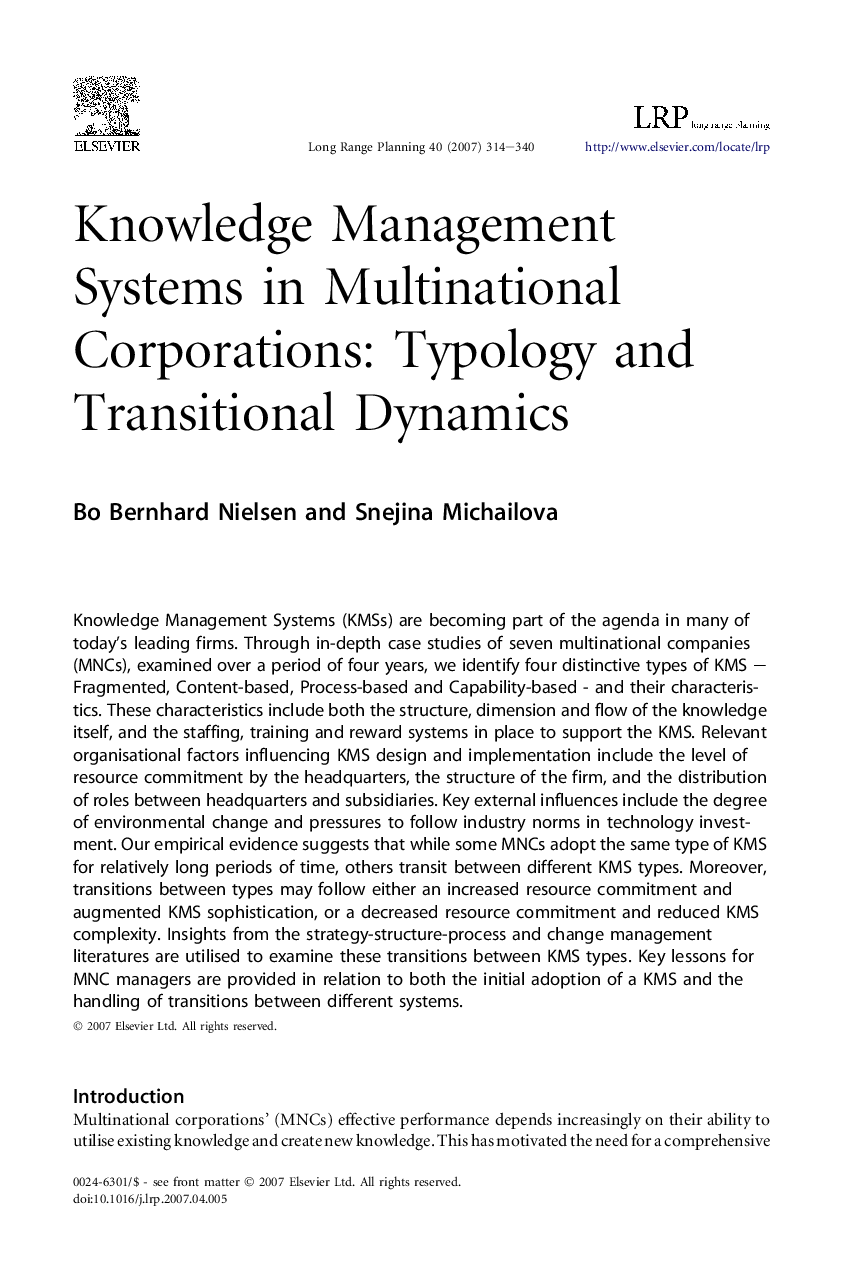| Article ID | Journal | Published Year | Pages | File Type |
|---|---|---|---|---|
| 1021657 | Long Range Planning | 2007 | 27 Pages |
Knowledge Management Systems (KMSs) are becoming part of the agenda in many of today's leading firms. Through in-depth case studies of seven multinational companies (MNCs), examined over a period of four years, we identify four distinctive types of KMS – Fragmented, Content-based, Process-based and Capability-based - and their characteristics. These characteristics include both the structure, dimension and flow of the knowledge itself, and the staffing, training and reward systems in place to support the KMS. Relevant organisational factors influencing KMS design and implementation include the level of resource commitment by the headquarters, the structure of the firm, and the distribution of roles between headquarters and subsidiaries. Key external influences include the degree of environmental change and pressures to follow industry norms in technology investment. Our empirical evidence suggests that while some MNCs adopt the same type of KMS for relatively long periods of time, others transit between different KMS types. Moreover, transitions between types may follow either an increased resource commitment and augmented KMS sophistication, or a decreased resource commitment and reduced KMS complexity. Insights from the strategy-structure-process and change management literatures are utilised to examine these transitions between KMS types. Key lessons for MNC managers are provided in relation to both the initial adoption of a KMS and the handling of transitions between different systems.
